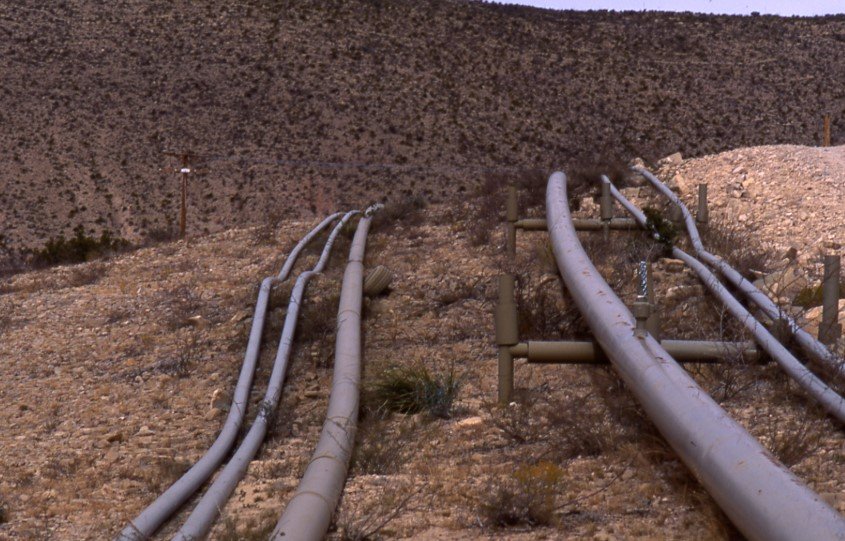Chevron and Israel’s state-owned pipeline company have inked a major agreement to build an onshore natural gas pipeline from the Leviathan field to Egypt. This deal, announced in mid-September 2025, aims to boost energy exports and meet Egypt’s growing demand amid falling domestic production.
Deal Sparks Regional Energy Boost
The agreement focuses on the Nitzana pipeline, a 65-kilometer onshore route that will carry natural gas from Israel’s Leviathan offshore field directly to Egypt. Construction is set to start soon, with completion expected by 2028.
This project follows a massive $35 billion export deal signed in August 2025 between the Leviathan partners and Egypt. That 15-year pact covers 130 billion cubic meters of gas, marking Israel’s largest energy export agreement ever.
Chevron, as the operator of Leviathan, leads the consortium with partners like NewMed Energy and Ratio Energies. The pipeline will handle at least 600 million cubic feet of gas per day, easing bottlenecks in current export routes.
Industry experts say this move strengthens ties between Israel and Egypt, building on years of energy cooperation that began with smaller deals in 2018.

Background on Leviathan Field
Discovered in 2010, the Leviathan field holds about 600 billion cubic meters of recoverable natural gas reserves. It started production in 2019 and now supplies Israel, Jordan, and Egypt.
Egypt has ramped up imports due to declining output from its Zohr field and rising domestic needs. Power shortages in recent summers have pushed Cairo to seek stable supplies from neighbors.
The new pipeline adds to existing routes, like the subsea East Mediterranean Gas pipeline and overland links through Jordan. Past disruptions, such as a brief halt in 2023 due to regional tensions, highlight the need for reliable infrastructure.
- Leviathan’s current export capacity to Egypt stands at around 1.6 billion cubic feet per day via existing lines.
- The Nitzana addition could push total flows above 2.2 billion cubic feet daily.
- Egypt aims to use some imported gas for its liquefied natural gas plants to export to Europe.
Economic and Strategic Impacts
The $610 million pipeline project promises big economic wins for all sides. Israel expects higher royalties and taxes, potentially adding billions to state coffers over the deal’s life.
For Egypt, it means more affordable energy to fuel industries and households, cutting reliance on costly liquefied natural gas imports. Analysts predict this could save Egypt up to $5 billion yearly in energy costs.
On the strategic front, the deal deepens economic bonds in a tense region. It aligns with broader efforts to integrate Eastern Mediterranean gas resources, including potential links to Europe amid global shifts away from Russian supplies.
However, challenges remain. Environmental groups worry about methane leaks and habitat disruption during construction. Geopolitical risks, like ongoing Middle East conflicts, could delay timelines.
| Key Pipeline Details | Information |
|---|---|
| Length | 65 kilometers |
| Capacity | 600 million cubic feet per day minimum |
| Cost | $610 million |
| Timeline | Construction starts 2025, operational by 2028 |
| Route | Onshore from Israel to Egypt border |
Global Energy Context
This agreement comes as natural gas plays a key role in the transition to cleaner energy. With Europe seeking alternatives post-2022 Ukraine crisis, Eastern Mediterranean supplies have gained attention.
Chevron’s involvement underscores U.S. firms’ growing stake in the region. The company acquired Noble Energy in 2020, gaining control of Leviathan and nearby Tamar field.
Recent events, such as Egypt’s push for renewable energy targets by 2030, add layers. While gas imports bridge the gap, Cairo plans to boost solar and wind power to 42 percent of its mix.
Market watchers note rising global gas prices in 2025, driven by Asian demand and weather events, making timely exports crucial for Israel.
Future Outlook and Challenges
Looking ahead, the pipeline could pave the way for more regional projects, like expanding to Lebanon or Cyprus fields. Experts forecast Eastern Mediterranean gas output to double by 2030 if investments continue.
Yet, success hinges on stable politics. Recent talks between Israel and Egypt emphasize security measures to protect infrastructure.
Energy analysts predict the deal will stabilize prices and enhance supply security for Egypt, potentially influencing North African markets.
What do you think about this energy partnership? Share your views in the comments and spread the word to keep the conversation going.
